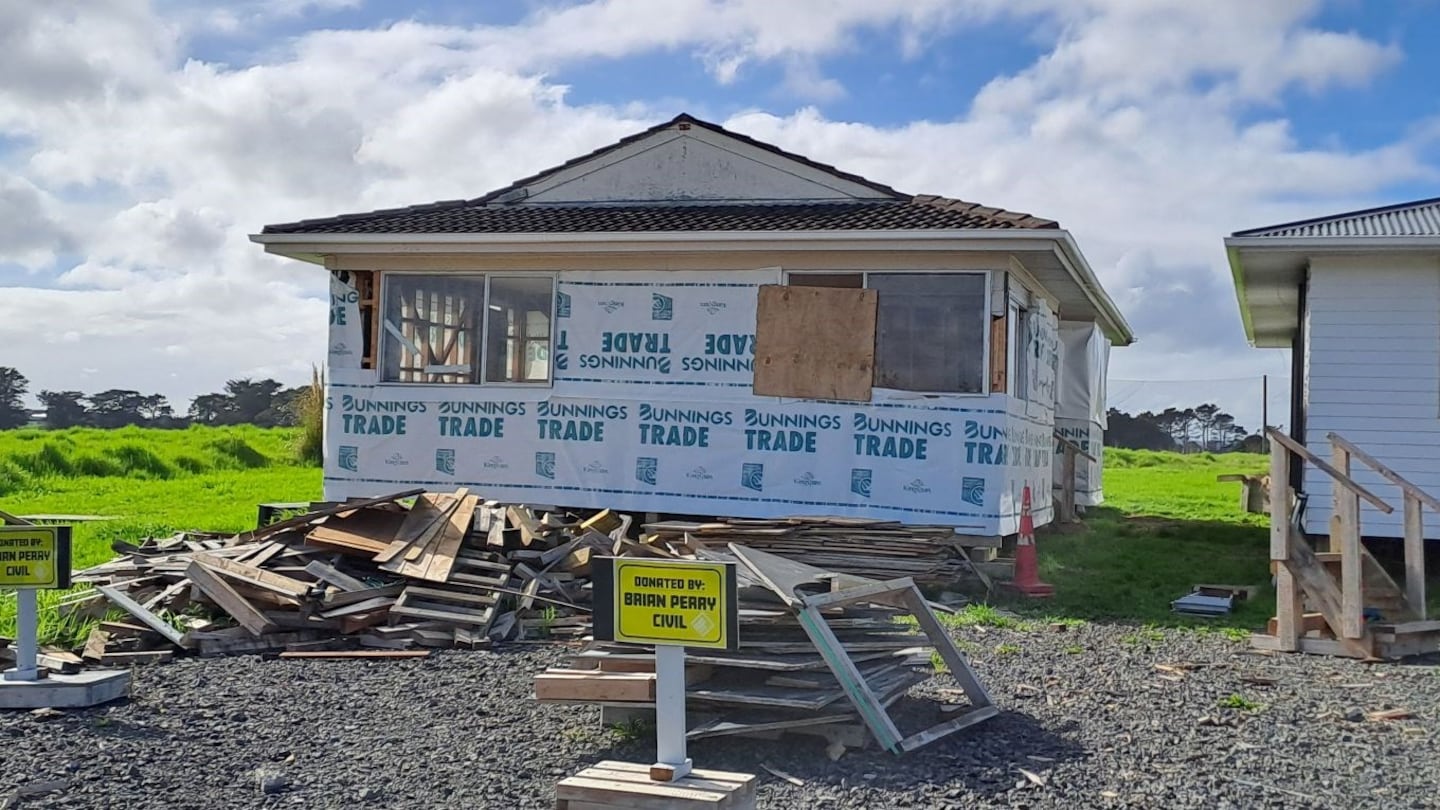A South Auckland leader says local rangatahi are transforming derelict homes into real opportunities, cutting waste and gaining valuable skills along the way.
Tauanuʻu Nick Bakulich, Māngere-Ōtāhuhu Local Board chair, supports the work of the Ara Education Charitable Trust, which helps deliver local jobs, build youth skills and keep waste out of landfill.
The trust receives seed funding from Auckland Council’s Waste Minimisation and Innovation Fund (WMIF), which backs projects that help achieve the city’s zero waste goals.
Through the construction skills programme, rangatahi deconstruct run-down houses, salvage usable materials and fully restore each home in about six to eight months. Once refurbished, the houses are resold and the profits fund the next rebuild.
Tauanuʻu says the project supports sustainability and shows how old houses that might have ended up in a landfill now create real opportunities for young people.
“It aligns very well with our priorities. It’s a programme that’s been around for a while, and we’ve seen good success with students here in Māngere who’ve participated in it,” Tauanuʻu says.
“The first part is employment, which is really important for our young people. But it’s also the education piece, understanding how much waste goes to landfill and what can actually be saved.
“Those houses could have gone to waste or not been used at all. Now you’ve got young people working in them and putting them to good use instead of sending them to landfill.”
Construction and demolition waste makes up more than 40 per cent of Auckland’s total landfill volume. The Māngere-based trust proves that what looks like rubbish can become a fresh start and give new life to old derelict homes.
Christine O’Brien, Māngere-Ōtāhuhu Local Board member, says the trust’s work shows what local youth and council support can achieve together.
“I very much appreciate the Ara kaupapa and it’s been great to see the Ara Rangatahi Pathways to Employment Programme on a firm footing in recent years,” O’Brien says.
Through the home refurbishment programme, local rangatahi learn various skills hands-on under experienced tradespeople, she says.
“I also love the fact that older houses are not demolished and added to our waste streams but are refurbished by the students. They then become great homes for people elsewhere in the country, sold on to them at no profit. Really a win-win-win.”
Dr Sarah Redmond, Ara Education Charitable Trust General Manager, says council support has helped the trust invest in new tools and find ways to reuse tricky waste streams like outdated Hardie board cladding.
“Our young people become ambassadors for waste minimisation,” Redmond says. “When something breaks down, whether here or at home, instead of thinking they’ll chuck it in the bin and buy it new, they know with a bit of thought and effort they can probably fix it good as new.”
Beyond houses, Ara’s trainees get creative with every leftover scrap.
Timber and materials are turned into furniture, plywood becomes letterboxes for community groups, and rimu and kauri are crafted into chopping boards and plaques for programme graduates.
They even build weta motels for local environmental groups. Trainees de-nail timber for reuse and collect the nails for steel recycling, finding a use for almost everything that might otherwise go to waste.
Mark Roberts, Auckland Council Senior Waste Planning Specialist, says the construction industry could recover far more resources with better practices.
“To make a dent in the enormous amounts of construction waste going to landfill, we need to support different ways of working and building,” Roberts says.
As Auckland pushes towards its zero waste target, local leaders say community-led solutions like this show that young people can lead the way in changing the city’s waste story, one rebuild at a time.
Find out more at Ara Jobs & Skills or About the WMIF.
Local Democracy Reporting is local body journalism funded by RNZ and NZ On Air



